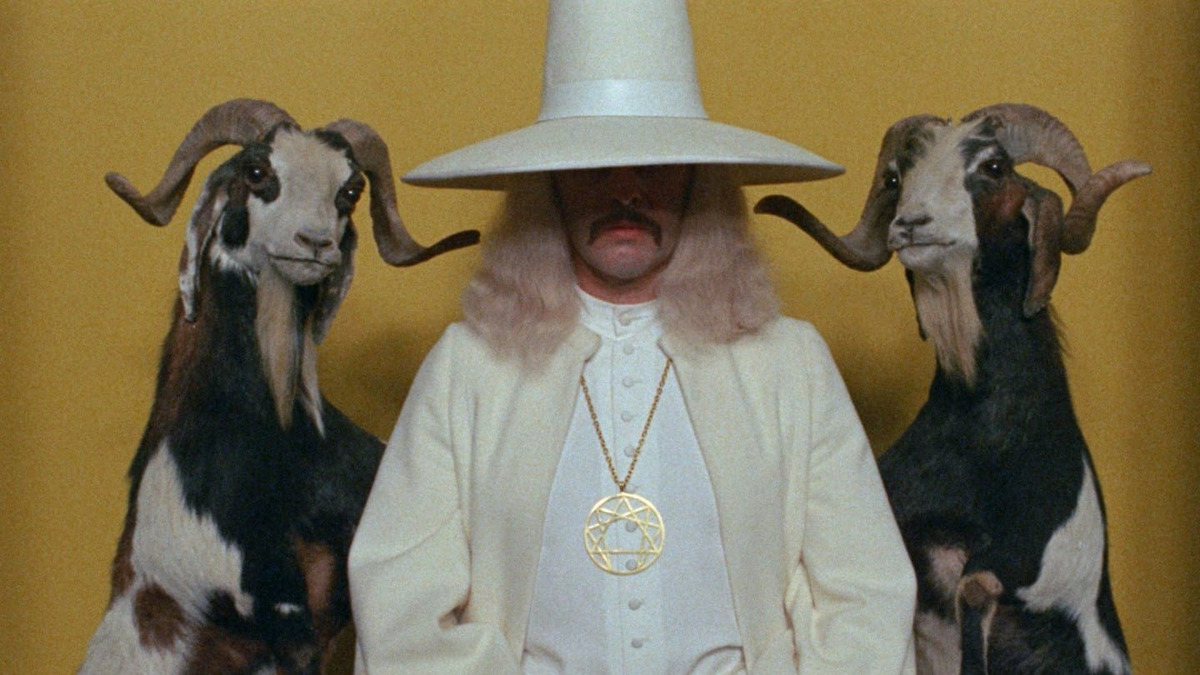The Holy Mountain (1973)
November 22, 2025

My immediate impression was, every scene was visually stunning, seemingly embedded with lots of meaning, but trying to find the meaning behind the scenes and put it together is hard. 7/10.
The movie is about a Christ-like figure and an Alchemist that leads eight people on a quest to find immortality.
The film, as described by the director Jodorowsky himself, is meant to do:
“what most North Americans ask of psychedelic drugs. The difference being that when one creates a psychedelic film, he need not create a film that shows the visions of a person who has taken a pill; rather, he needs to manufacture the pill.”
It is less meant to make conceptual sense, but more like to get the kind of self-insight one gets on a psychedelic trip, hard to put in words, a kind of transcendental experience.
If I had to put the big themes into words, it would probably be enlightenment. All of them are on a quest to reach immortality, which is nothing more than enlightenment. Throughout the movie, you see scene over scene of how corrupted humanity is: commodification, cruelty, and much more. Yet through all of this, people still yearn for something that transcends all this. All these material conditions serve as a distraction for enlightenment. Thus, we first see what prevents enlightenment, and then we get rid of it.
When they finally reach the promised mountain that is supposed to give immortality, only the Christ-like figure stays behind; the others go up the mountain. Here, the great twist happens:
“I promised you the great secret and I will not disappoint you. Is this the end of our adventure? Nothing has an end. We came in search of the secret of immortality. To be like gods. And here we are… mortals. More human than ever. If we have not obtained immortality, at least we have obtained reality. We began in a fairytale and we came to life! But is this life reality? No. It is a film. Zoom back camera. We are images, dreams, photographs. We must not stay here! Prisoners! We shall break the illusion. This is Maya (illusion). Goodbye to the holy mountain. Real life awaits us.”
There was no enlightenment; there is no immortality; there are no gods; there is no secret path or recipe for happiness or enlightenment. All that there is is reality.
And that is not only true for the characters of the movie but also for us, the audience. When the Alchemist breaks the fourth wall and seems to address us, the audience, directly with “Real life awaits us,” we have two meanings. The first for the eight people in the movie that followed the Alchemist to the mountain: There was no enlightenment, there is no immortality, there are no gods, there is no secret path or recipe for happiness or enlightenment, all that there is is reality. But this is not only true for the characters in the movie but also for us. While watching the movie, we were looking to get some insight on what the movie means, how to get enlightenment, and so on, but there is none of that, and like the eight, we the audience need to return to our lives no wiser than before. This is the second meaning.
But Jodorowsky offers a bit more, because what happened to the Christ-like figure that was left behind? He was left behind because there was never anything on the mountain for him in the first place. Instead, he united with the woman he loves:
“Unite yourself with this good woman, who came here only because she loves you. Forget the summits, reach eternity through love. Return to your country. I leave you my tower and my alchemical rooms. This is your family and your people.”
Thus, in fact, he is the only one reaching happiness through the teachings of the Alchemist. He transcended the corrupt society and achieved enlightenment on his own through love. Hence, the movie offers the message: those who seek enlightenment through power and corruption will never find it; only through love, self-discovery, and life itself can enlightenment be reached.
